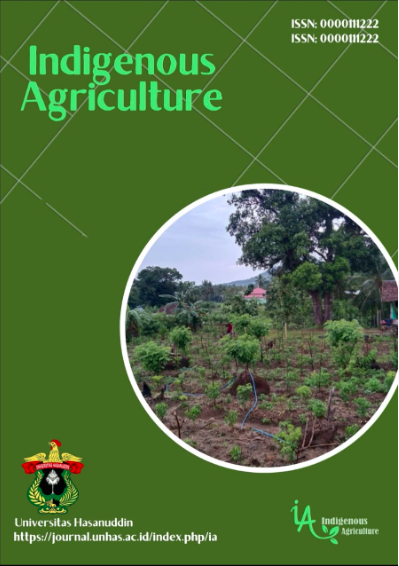Adaptation Strategies of Wet-Rice and Dry-Rice Farming Households in Facing Local Climate Change in Polewali Mandar, Indonesia
Keywords:
Cilimate change, vulnerability, strategy, drought, floodAbstract
Climate change, such as reduced rain intensity, is the biggest reason for the decline in crop yields and impacts farmers' income. This study aimed to analyze the adaptation strategies of households of wet-rice and field rice farmers in the face of climate change (drought and flood). The research was conducted in Matakali Sub-district, Polewali Mandar Regency, with the research design of survey method and in-depth interviews on Farmer Households as the unit of analysis. The results showed that the adaptation strategies carried out by households of wet-rice and field rice farmers in Matakali District to minimize the negative impacts of climate change include: 1) survival strategy, 2) consolidation strategy, and 3) accumulation strategy. Survival strategies carried out by households of wet-rice and field rice farmers in maintaining their survival are by diversifying their work, economic adaptation, and getting assistance from the government. The consolidation strategy is carried out by households of wet rice and field rice farmers who can still fulfill their needs despite experiencing crop failure. Farming communities that apply consolidation strategies borrow money from relatives, families, banks, and cooperatives. Accommodation strategies are carried out by groups of farming households, namely opening a grocery store business. The application of survival, consolidation, and accumulation strategies is sometimes still needed to meet all the needs of the households of wet-rice and field rice farmers.
Downloads
Published
Issue
Section
License
Copyright (c) 2023 Aulia Nurul Hikmah, Putra Astaman, Muhammad Dassir, Sitti Nadirah, Saddam Suliman Mohamed Yousof

This work is licensed under a Creative Commons Attribution-ShareAlike 4.0 International License.


